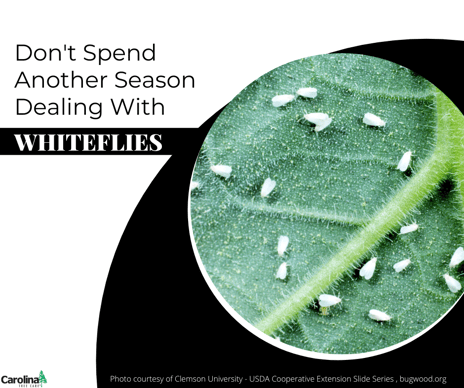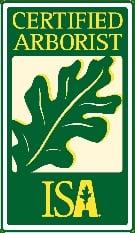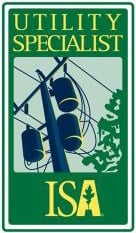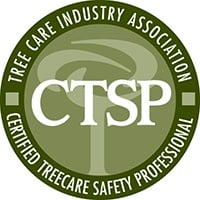Pop quiz time! 💥
This insect damages trees and shrubs by sucking up the sap in their leaves. It excretes a sugary substance called honeydew that eventually attracts a fungus called sooty mold.
What insect are we talking about?
If you're a faithful reader of our blog, or you've had problems with these insects in the past, you might guess aphids or scales. But there's another insect that attacks plants in the same way and also leaves honeydew behind — whiteflies.
The flying white bugs in your trees and shrubs
If you've ever shaken a plant and watched a cloud of white bugs fly up into the air, you've likely encountered whiteflies. Although they may look like small white moths, whiteflies are actually more closely related to aphids and mealybugs.
There are over 1,500 species of whitefly worldwide, but one of the more common ones you'll see here in the South is the azalea whitefly. As you might expect, these bugs feed on azaleas.
Other whitefly species that enjoy munching on a wider range of plants include the silverleaf whitefly and the citrus whitefly. Silverleaf whiteflies are smaller and more yellow than other whiteflies, and citrus whiteflies are especially fond of gardenias.
What do whiteflies do to your plants?
Like tea scales, whiteflies feed on the undersides of leaves using highly modified mouthparts called stylets. The top sides of the leaves will become pale or spotted as the whiteflies get their fill.
As mentioned above, whiteflies excrete honeydew, a sweet, sticky substance that ants and wasps love but you'll hate as it drips onto sidewalks, cars, other plants, or anything else under the infested plant. Eventually, a black fungus called sooty mold will grow on the honeydew.
Why is all this bad for your trees and shrubs? Whiteflies take away nutrients that trees and shrubs need to grow and compromises their defenses. Plus, sooty mold can disrupt photosynthesis, reduce plant growth, cause early leaf drop, and leave your tree looking terrible.
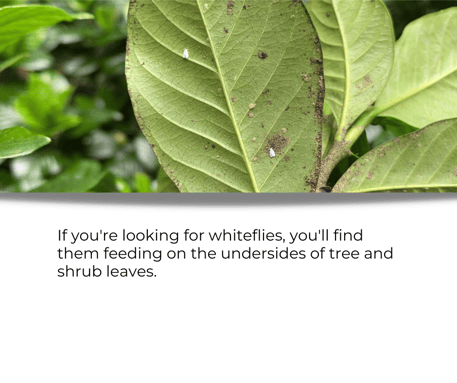
How to get rid of whiteflies in Charlotte, NC
Heavy whitefly infestations can really do damage to your tree or shrub, but there are ways to control the whitefly population on your property in Charlotte, NC.
For one thing, whiteflies have many natural predators, including ladybugs, spiders, green lacewing larvae, dragonflies, and hummingbirds. Avoiding chemicals that kill off those predators can help.
For another, whiteflies will fly off plants when disturbed, so blasting them off with a hose is a good tactic to try.
If you're dealing with a particularly heavy infestation or would rather not have sticky or moldy trees and shrubs, we offer a few plant health care treatments to control whiteflies, including basal bark sprays, foliar sprays, and soil injections.
Talk to a plant health care professional to discuss the best way to get rid of the whiteflies on your trees and/or shrubs. Request a consultation now!
Like what you just read?
Then you'll love this: Scale: A Tree and Shrub Pest to Put on Your Radar

